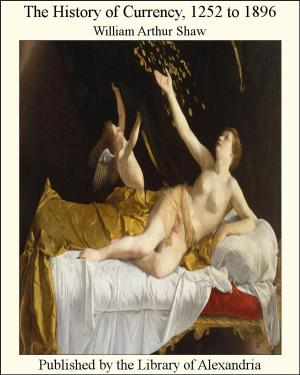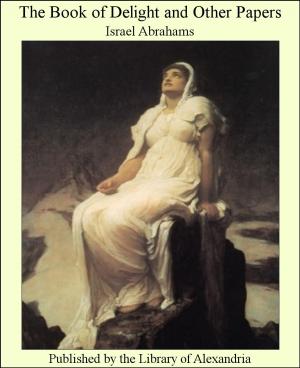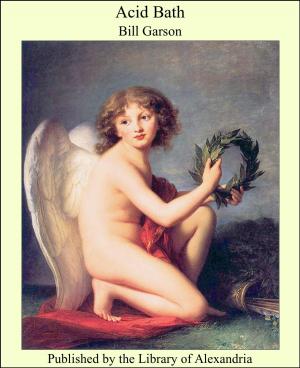Christmastide: Its History, Festivities, and Carols
Nonfiction, Religion & Spirituality, New Age, History, Fiction & Literature| Author: | William Sandys | ISBN: | 9781465605207 |
| Publisher: | Library of Alexandria | Publication: | March 8, 2015 |
| Imprint: | Language: | English |
| Author: | William Sandys |
| ISBN: | 9781465605207 |
| Publisher: | Library of Alexandria |
| Publication: | March 8, 2015 |
| Imprint: | |
| Language: | English |
IT would not be consistent with the proposed character of this work to enlarge on the Christian dispensation, as connected with the sacred feast of Christmas; to show Christianity as old as the Creation; that the fall of man naturally involved his punishment; and hence the vicarious sacrifice of our Saviour to redeem us from sin and death. These are subjects to be entered on by those who have had opportunities, if not of thinking more, at least of reading more, relative to them, than the writer of these pages, whose leisure hours are few, and whose endeavour will be to give, in as popular and interesting a manner as his abilities will enable him, some information respecting the mode of keeping this Holy Feast, particularly in England, in the olden times, and in the middle ages. The Nativity is hailed by Christians of all denominations, as the dawn of our salvation; the harbinger of the day-spring on high; that promise of futurity, where care, sin, and sorrow enter not, where friends long severed shall meet to part no more; no pride, no jealousy, no self (that besetting sin of the world) intruding. Well, then, may we observe it with gratitude for the unbounded mercy vouchsafed to us; for the fulfilment of the promise pronounced in the beginning of the world, releasing us from the dominion of Satan. A promise which even the Pagans did not lose sight of, although they confused its import, as a glimmering of it may be traced through their corrupted traditions and superstitious ceremonies. Has the early dream of youth faded away purposeless?—the ambition of manhood proved vanity of vanities? Have riches made themselves wings and flown away? or, has fame, just within the grasp, burst like a bubble? Have the friends, the companions of youth, one by one fallen off from thy converse; or the prop of advancing age been removed, leaving thee weak and struggling with the cares of life; or, has “the desire of thine eyes” been taken from thee at a stroke? Under these and other trials, the Christian looks to the anniversary of the Nativity (that rainbow of Christianity) as the commemoration of the birth of the Blessed Redeemer, who will give rest to the weary, and receive in his eternal kingdom all those who truly trust in him. And well may His name be called, “Wonderful, Counsellor, the Mighty God, the Everlasting Father, the Prince of Peace!” The season of Christmas, however, was not only set apart for sacred observance, but soon became a season of feasting and revelry; so much so, that even our sumptuary laws have recognised it, and exempted it from their operation. When Edward the Third, in his tenth year, endeavoured to restrain his subjects from over luxury in their meals, stating that the middle classes sought to imitate the great in this respect, and thus impoverished themselves, and became the less able to assist their liege lord, he forbade more than two courses, and two sorts of meat in each, to any person, except in the great feasts of the year, namely, “La veile et le jour de Noël, le jour de Saint Estiephne, le jour del an renoef (New Year’s Day), les jours de la Tiphaynei et de la Purification de Nostre Dame,” &c.
IT would not be consistent with the proposed character of this work to enlarge on the Christian dispensation, as connected with the sacred feast of Christmas; to show Christianity as old as the Creation; that the fall of man naturally involved his punishment; and hence the vicarious sacrifice of our Saviour to redeem us from sin and death. These are subjects to be entered on by those who have had opportunities, if not of thinking more, at least of reading more, relative to them, than the writer of these pages, whose leisure hours are few, and whose endeavour will be to give, in as popular and interesting a manner as his abilities will enable him, some information respecting the mode of keeping this Holy Feast, particularly in England, in the olden times, and in the middle ages. The Nativity is hailed by Christians of all denominations, as the dawn of our salvation; the harbinger of the day-spring on high; that promise of futurity, where care, sin, and sorrow enter not, where friends long severed shall meet to part no more; no pride, no jealousy, no self (that besetting sin of the world) intruding. Well, then, may we observe it with gratitude for the unbounded mercy vouchsafed to us; for the fulfilment of the promise pronounced in the beginning of the world, releasing us from the dominion of Satan. A promise which even the Pagans did not lose sight of, although they confused its import, as a glimmering of it may be traced through their corrupted traditions and superstitious ceremonies. Has the early dream of youth faded away purposeless?—the ambition of manhood proved vanity of vanities? Have riches made themselves wings and flown away? or, has fame, just within the grasp, burst like a bubble? Have the friends, the companions of youth, one by one fallen off from thy converse; or the prop of advancing age been removed, leaving thee weak and struggling with the cares of life; or, has “the desire of thine eyes” been taken from thee at a stroke? Under these and other trials, the Christian looks to the anniversary of the Nativity (that rainbow of Christianity) as the commemoration of the birth of the Blessed Redeemer, who will give rest to the weary, and receive in his eternal kingdom all those who truly trust in him. And well may His name be called, “Wonderful, Counsellor, the Mighty God, the Everlasting Father, the Prince of Peace!” The season of Christmas, however, was not only set apart for sacred observance, but soon became a season of feasting and revelry; so much so, that even our sumptuary laws have recognised it, and exempted it from their operation. When Edward the Third, in his tenth year, endeavoured to restrain his subjects from over luxury in their meals, stating that the middle classes sought to imitate the great in this respect, and thus impoverished themselves, and became the less able to assist their liege lord, he forbade more than two courses, and two sorts of meat in each, to any person, except in the great feasts of the year, namely, “La veile et le jour de Noël, le jour de Saint Estiephne, le jour del an renoef (New Year’s Day), les jours de la Tiphaynei et de la Purification de Nostre Dame,” &c.















